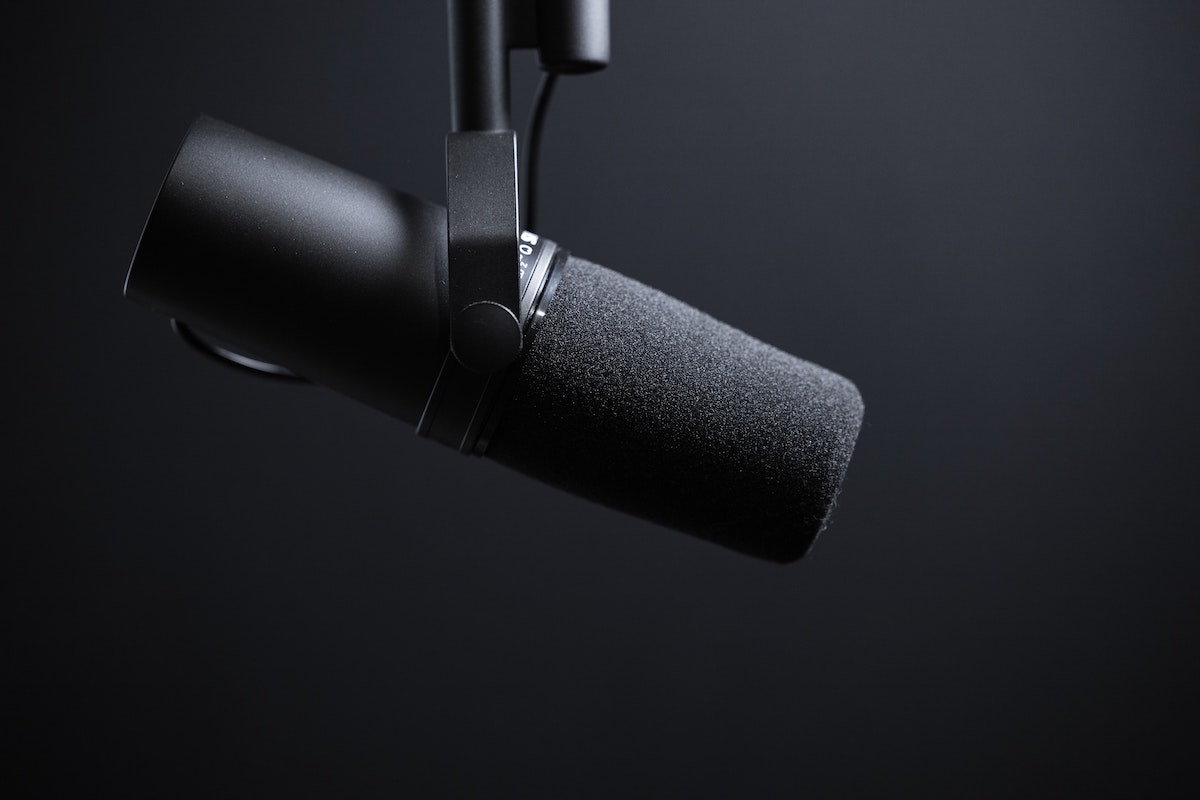Instead of doing a traditional book tour, which was inaccessible to me at the time, I created a virtual book tour by appearing on over 100 podcasts in the span of just 6 months.
You don’t need to have a book out to see the value in reaching a wide and diverse, yet relevant audience. Whether you’re building a business, or establishing yourself as a thought leader, you’ll want to
get on podcasts to raise the value of your personal brand.
I’ve learned a lot about the do’s and don’t’s of landing podcast guest spot. Here are a few tips based on my experience.
How to Get on a Podcast (and be a Good Guest)
1) Create a media kit.
A media kit is the first step to presenting a polished and podcast-ready appearance.
The kit should have background on who you are, why you’re credible, the value you’ll deliver.
It should contain resources like a headshot, and links to social media profiles as well as a bio.
Best practice is to include two bios for the host to use as needed – a short one of just 3-5 sentences and a longer one of 150-200 words. A good kit should also have show angles and suggested questions.
Make the job of the booker or host as easy as possible and you’ll make it easy for them to say yes to you.
2) Find appropriate podcasts.
Don’t just spray your message to anyone who will listen.
Putting out careless messages by the dozen trying to land a spot will only damage your professional profile, not help it.
Do a thorough investigation and ask yourself, “will this help their audience.” You can look for podcasts by category (e.g. marketing, leadership). You can also find other experts and see what podcasts they’ve been on. Take the time to do your homework.
3) Promote the podcast.
Being on a podcast is going to expand your brand and reach, the least you can do is to help the podcaster do the same.
Promote the episode on your social media channels, website, and email lists. Podcasts are more likely to book you if you’re going to help them out. Make it clear that having you will be mutually beneficial.
4) Network.
This is one aspect of being a podcast guest that so many people ignore, but it’s also one of the most critical.
Make sure in your calendar you leave time to talk to the host before or after the show. Use this to build a relationship.
Ask how you can help the podcaster, maybe by suggesting other guests. Don’t just make an appearance, make a connection.
5) Have clear talking points.
If you haven’t had any media training, get some.
If you aren’t media-ready it’s better to pay for
coaching than to pay in a bad performance that will live on, forever be associated with your name, and hold you back from landing future podcast guest spots.
Be clear on your message, be clear on your soundbites. For example, I talk about how networking is about relationship building and I have a sound bite for that message, “Saying someone who you just added on LinkedIn is in your network is like saying someone you matched with on tinder is your significant other.”
This gets my point across and sticks out in the listener’s mind. Have a concise story, example, or soundbite for your point.
Practice it on others and see how it sounds out loud. Try a few different versions.
It takes time and work to refine your soundbite, you want to do that work before you go on the air.
6) Buy a decent mic.
On a podcast, your voice is your image.
Invest in a condenser mike, do not use the internal microphone in your laptop. Even a $50-100 mic sounds miles better and will help you leave a strong impression.
7) It’s not just audio.
Many podcasts do video these days. Make sure you have a nice background.
Even more important, invest in decent lighting. use natural lighting or a 3 point lighting setup.
I wound up using a 5 point lighting setup.
Good lighting really makes a difference and it’s one of the most important things you can invest time and money in getting right.
8) Remember who you serve.
While you certainly have your own agenda for appearing on a show, at the end of the day every show is first and foremost for the audience – not the host and not the guest.
Make sure you’re giving value to the audience or you’re wasting their time and yours.
If you aren’t audience-focused in everything from your presentation to your messaging then your appearance is sure to be a dud no matter what.


 Mark Herschberg
Mark Herschberg